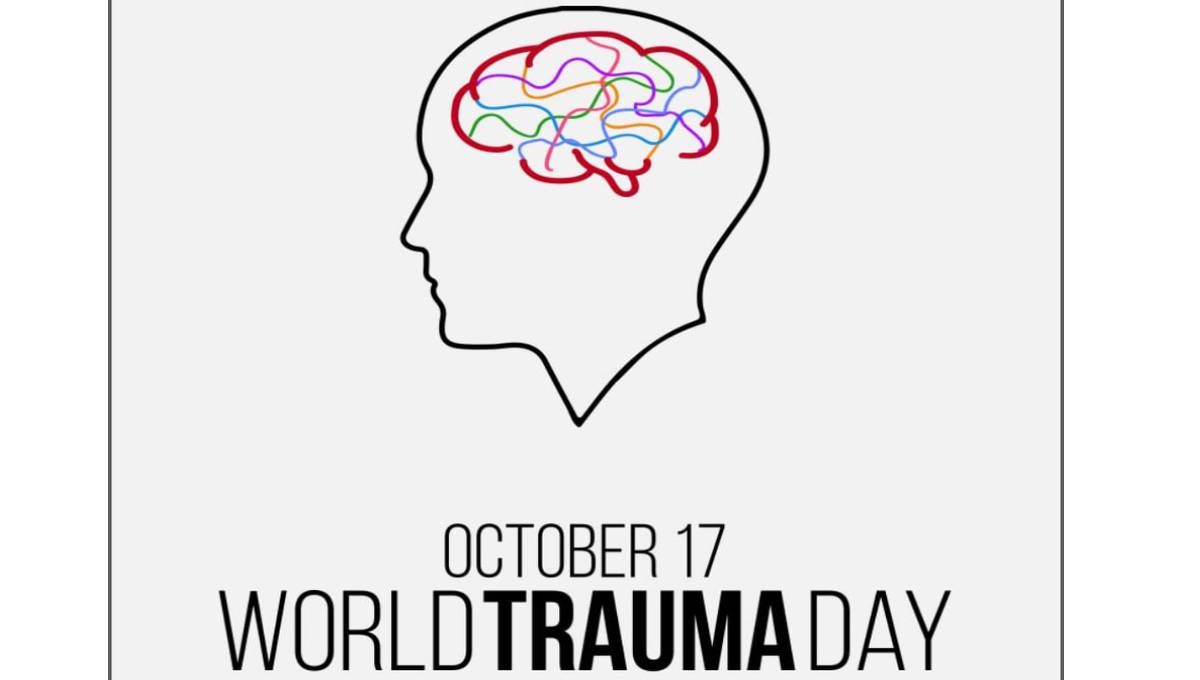FT Online
Published:2019-10-17 23:36:05 BdST
World Trauma Day: Where does Bangladesh stand?
Not many people in Bangladesh would have October 17 marked in their calendar to mark the World Trauma Day, commemorated in solidarity with millions around the world carrying injuries sustained in various accidents or other such traumatic situations, and to raise awareness against the effects of psychological as well as physical trauma.
Although the day is commemorated in a number of countries around the world, including India where it was first held in 2011, the Bangladesh government has not yet bought in to the need to prioritise the day’s stated objectives, such as measures to prevent road accidents that are often traumatic events. A handful of medical institutes and clinics do observe the day privately.
While the trauma patients receive possible treatment for physical injuries in clinics and hospitals, it is equally important to give attention to behavioural and psychological effects of the event. Cases of physical trauma induced from accidents keep rising in Bangladesh.
A report of Shipping and Communication Reporters Forum (SCRF) states that 4,361 individuals were injured in 2,159 road accidents across Bangladesh in just the first 6 months of 2019.
Earlier this year, the Bangladesh Jatri Kalyan Shamity, a platform of commuters and passengers, said 866 people were injured in some 203 road accidents recorded across the country between August 6 and 17 – the period covering the Eid-ul-Azha holidays.
In 2018 alone, a total of 15,980 people were wounded in different accidents across the country. These survivors of accidents with injuries are all potential victims of trauma.
According to the World Health Organization report, around 12 million people are killed in road accidents and more than 50 million people are injured worldwide.
Country Head of AO Foundation (Trauma) in Bangladesh Prof Dr M Amjad Hossain told UNB that there is a gap of management between urban and rural areas in providing care for the traumatised. “People wounded in different accidents need physical and mental care even after recovery. Because of our vast population and poor communication system, they are deprived,” he said.
He added that there is an acute crisis of manpower to provide necessary care to the victims.
“Although the government is keen to take various measures for the rehabilitation of trauma-induced patients, those are not implemented properly due to mismanagement,” said the former Head of Orthopaedic Surgery at Dhaka Medical College Hospital.
Patients who suffer severe injuries in the rural areas do not get the proper treatment and their conditions deteriorate over time on transfer to urban hospitals.
It is said whenever an accident occurs, the first one hour is the ‘golden hour’ because if proper medical care can be provided to the injured within this time, the possibilities of recovery increase greatly. “Patients suffering the trauma of accident need imminent medical attention and in long term they need mental support,” Dr Hossain said.
“Everyone must start working to put an end to road accidents now. An awful lot people get injured, disfigured and traumatised because of falling victims to accidents,” he said.
He further said the private initiatives to provide support are also inadequate. “There is no planning although to help the traumatised patients as well as to raise awareness we have to work in a planned and articulated way,” Dr Hossain said.
Apart from physical damage, the psychological trauma of an accident can scar the patient for rest of his life and it is a matter of sorrow that in Bangladesh, the necessity of psychological support to patients is highly neglected.
“There are a lot of physically challenged patients who had fallen victims to accidents. The negative impact of the accident leaves them in mental trauma even after the recovery. They require proper counselling and psychological support but the public neglect this side of treatment,” Dr Hossain told UNB.
Experts believe that the World Trauma Day should be observed more widely across the country so that people become aware and take the best precautions to prevent accidents.
“All government and private institutions and organisations should come forward to observe the day to create awareness among people. Media can play a key role here,” said Dr Amjad Hossain.
Views of Prof Mahjabeen Haque, Chairperson of Educational and Counselling Psychology Department at Dhaka University (DU), resonated with this statement.
“The more we will make people aware about it, the more they will speak out and seek help,” she told UNB.
Prof Mahjabeen believes mental traumas which do not occur from physical wounds should be addressed.
“Sometimes trauma can trigger without any physical injury even. Traumatic incidents held over from one’s childhood, such as abuse or a particularly strong rebuke, can hamper a person’s development in later life,” she said.
Prof Mahjabeen mentioned that handling trauma patients require expertise in the field and Bangladesh lacks the manpower. She also spoke about new measures to provide care for trauma patients and its introduction in Bangladesh.
“To help the trauma patients, Eye Movement Desensitization and Reprocessing (EMDR) is an effective psychotherapy. In Bangladesh there are 40 psychiatrists who have received level-2 training from abroad to provide the treatment but it’s not enough,” she told UNB.
"Among general people, there’re confusions about trauma. It’s something that can deeply affect a person's mental health without showing any sign outside. PTSD and depression are sometimes inevitable for a trauma patient," the DU teacher added.
Experts think the sooner people recognise trauma and its effect, the better it will be for the country. The state, private sectors and the public should work hand-in-hand in creating awareness and providing care to the victims.
Unauthorized use or reproduction of The Finance Today content for commercial purposes is strictly prohibited.


